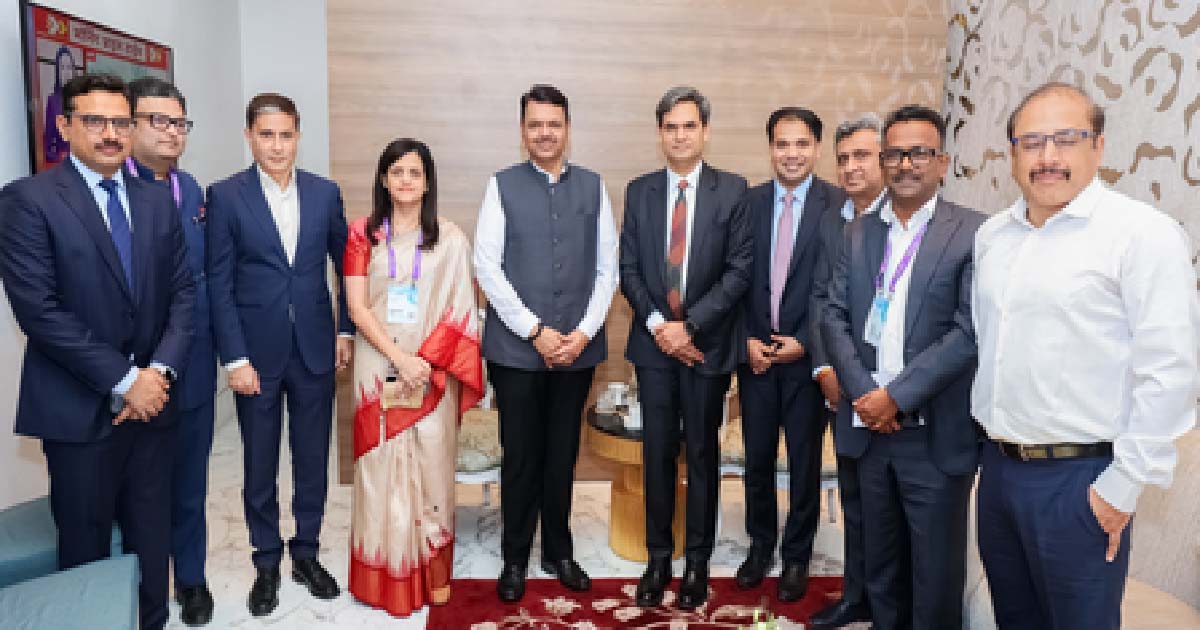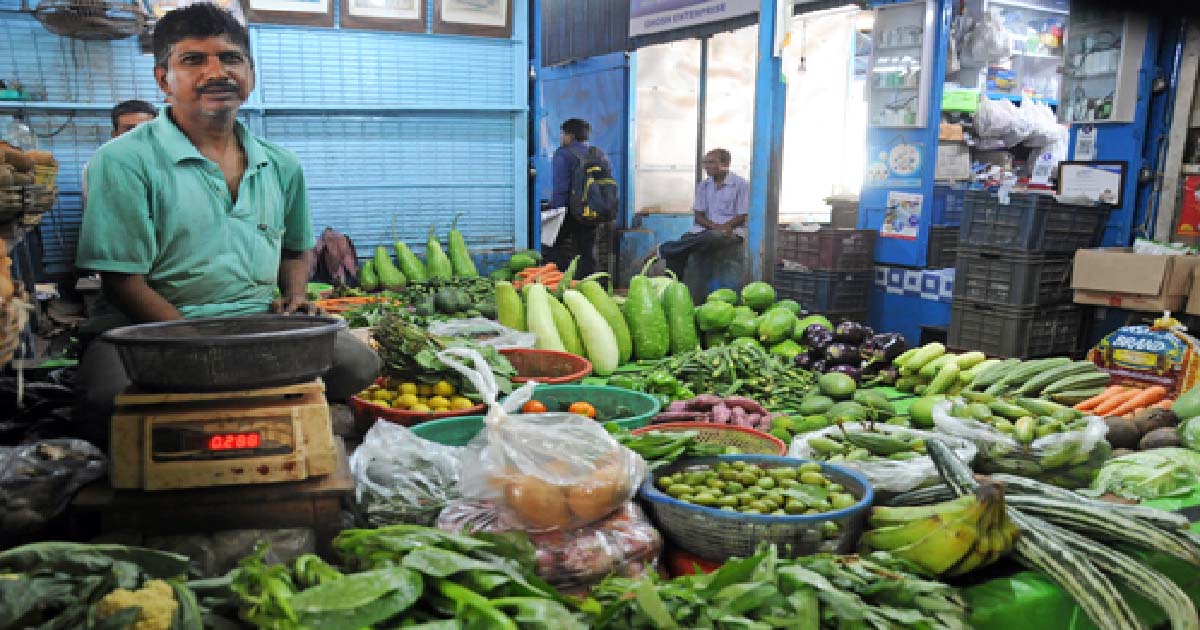Business
Not seeing improved severance package, Ford India’s Chennai workers protest

Around 2,200 workers of Ford India Pvt Ltd’s plant near here are on protest demanding better severance package as the company has decided to shut down the plant sometime next month, said a workers’ union leader.
The workers are also dejected at being left out, as Ford India’s Gujarat plant and its workers will be taken over by Tata Motors’ subsidiary Tata Passenger Electric Mobility.
“The Tamil Nadu government should step in and secure a decent severance compensation for the Ford India workers in the state,” a workers union leader, speaking on condition of anonymity, told IANS.
According to the union official, production of cars at the Maraimalainagar plant is scheduled only for ten days.
Currently, the plant rolls out EcoSport for the export market.
The management is sticking to its stand on the severance compensation package and is not willing to move ahead, the official added.
In September 2021, Ford India announced its decision to wind down vehicle assembly in Gujarat’s Sanand by the fourth quarter of 2021, and vehicle and engine manufacturing in Chennai by the second quarter of 2022.
Ford India has four plants in the country – vehicle and engine plants in Chennai and Sanand.
Ford’s “quit India” decision will result in an uncertain future for about 5,300 employees – workers and staff, the officials said last year.
The Chennai plant has about 2,700 associates (permanent workers) and about 600 staff.
“In Sanand, the number of workers will be about 2,000,” Sanand workers’ union General Secretary Nayan Kateshiya had told IANS.
Ford India had said more than 500 employees at the Sanand engine plant, which produces engines for export, and about 100 employees supporting parts distribution and customer service, also will continue to support Ford’s business in India.
According to Ford India, about 4,000 employees are expected to be affected by its decision.
The workers at Ford India want the prospective buyer of the car plants to hire them.
On Monday, Tata Passenger Electric Mobility and Ford India signed an MOU with the Gujarat government for the potential acquisition of Ford India’s Sanand vehicle manufacturing facility including its land and buildings, vehicle manufacturing plant, machinery and equipment, and transfer of all eligible employees engaged vehicle manufacturing operations, subject to the signing of definitive agreements and receipt of relevant approvals.
Tata Motors said Ford India will operate its powertrain manufacturing facilities by leasing back the land and buildings of the unit from Tata Passenger Electric Mobility.
Tata Passenger Electric Mobility would invest into new machinery and equipment which is necessary to commission and make the unit ready to produce its vehicles.
With the proposed investments, it would establish an installed capacity of 300,000 units per annum, which would be scalable to more than 400,000 units.
Tata Motors already has a presence in Gujarat and Ford India’s plant is nearby.
Last October, senior officials of Tata group had met Tamil Nadu Chief Minister M.K. Stalin that fueled the speculation about the former showing interest in Ford India’s plant in the state.
Tata Group Chairman N.Chandrasekaran had a meeting with Chief Minister Stalin, Industries Minister Thangam Thennarasu, and senior state government officials.
In September 2021, a Tata Motors delegation led by its Executive Director Girish Wagh had met Stalin.
However, the agenda of the two meetings was not known.
Business
Indian stock market ends in bullish tone over hopes of renewed FII inflows

Mumbai, Dec 13: Indian equity benchmarks made marginal losses during the week amid sustained FII outflows and uncertainty surrounding the US-India trade negotiations.
However, the market ended the week in a bullish tone with Nifty surging 0.57 per cent on the last trading day after the US Federal Reserve announced a 25-bps rate cut.
Benchmark indices Nifty and Sensex dipped 0.36 and 0.17 per cent during the week to close at 26,046 and 85,267, respectively.
Indian equities opened the week on a subdued note, amid continued rupee depreciation and negative global cues due to rising Japanese bond yields.
The US Fed rate cut later in the week eased liquidity concerns and fuelled hopes of renewed FII inflows. With supportive central bank policies, steady domestic investments, and optimism over trade progress despite unclear timelines, benchmarks closed the week on a strong note.
India’s year-on-year inflation rate based on the Consumer Price Index (CPI) was estimated at 0.71 per cent for November this year which was marginally higher than the 0.25 per cent in October, according to figures released by the Ministry of Statistics.
Broader indices underperformed, with the Nifty Midcap100 and Smallcap100 down 0.51 per cent and 0.67 per cent, respectively, in a week.
Sectoral performance was mixed, with IT under pressure while PSU banks, real estate and consumer durables witnessed selective buying.
Hrishikesh Yedve, AVP Technical and Derivative Research, Asit C. Mehta Investment Interrmediates, said that Nifty’s weekly chart shows buying interest at lower levels.
Nifty has 26,200 and 26,325 as stiff resistance levels while 25,700 will act as support zone, he added.
Analysts said that markets will likely remain positive in near future but sensitive to rupee stability, FII flow trends, trade agreement clarity, and cues from major central banks abroad.
Amidst risks from currency fluctuations and global trade uncertainties, improving earnings visibility and liquidity support provide a constructive backdrop and downside protection, they added.
Business
Maharashtra on path to becoming GCC hub: CM Fadnavis

Nagpur, Dec 12: Chief Minister Devendra Fadnavis on Friday announced that a crucial milestone has been achieved in the journey to establish Maharashtra as a GCC (Global Capability Centre) Hub.
He said that the Brookfield company is set to build Asia’s largest Global Capability Centre (GCC) in Mumbai, spanning approximately 2 million square feet.
The Chief Minister said that this project is expected to generate a total of 45,000 jobs, including 15,000 direct and 30,000 indirect jobs.
He stated that due to the state’s talent pool, infrastructure, and industry-friendly environment, Maharashtra is becoming a preferred destination for Global Capability Centres.
“The new GCC policy will lead to large-scale skill-based job creation and economic growth,” he added.
He also mentioned that FedEx, a global leader in the logistics sector, is keen to invest in its GCC and other operations near the Mumbai-Navi Mumbai airport area, said the government release.
The Chief Minister informed that he requested Microsoft to consider Maharashtra for their investments, noting that their largest existing investment is already in the state.
He expressed confidence that Microsoft will make a major investment in the future and take the lead in making Maharashtra an Artificial Intelligence (AI) centre.
The Chief Minister said that Maharashtra’s model for crime control with the help of Artificial Intelligence is a guiding light for the entire country.
Chief Minister Fadnavis confirmed that Microsoft has assured priority to Maharashtra in their largest ever investment in India, amounting to $17 billion.
He further highlighted the ‘Marble’ platform developed by Maharashtra, which helps detect cyber and financial crimes in just 24 hours instead of 3-4 months.
He said that this has resulted in saving people’s money and has expedited the process of tracking criminals.
Business
India’s CPI inflation estimated at 0.71 pc for Nov, food inflation stays in negative zone

New Delhi, Dec 12: India’s year-on-year inflation rate, based on the Consumer Price Index (CPI), was estimated at 0.71 per cent for November this year which was marginally higher than the 0.25 per cent in October, according to figures released by the Ministry of Statistics on Friday.
Food inflation stayed in the negative zone during November at (-) 3.91 per cent as prices of food goods fell compared to the same month of the previous year. Food inflation has now stayed negative for the sixth month in a row, easing the burden on household budgets.
However, the increase in headline inflation during November 2025 is mainly attributed to an increase in the inflation of vegetables, eggs, meat and fish, spices, and fuels compared to October, according to an official statement.
The retail inflation had eased further in October, after having plummeted to an over 8-year low of 1.54 per cent in September, as prices of food items and goods across sectors fell during the month.
The declining trend in food prices continued in October as food inflation fell deeper in the negative zone at (-) 5.02 per cent from (-) 2.28 per cent in September.
However, the overall outlook for inflation remains benign.
The RBI’s monetary policy committee (MPC) last week slashed its forecast for India’s inflation rate for the financial year 2025-26 to 2 per cent from 2.6 per cent predicted in October due to the sharp decline in food prices and the GST rate cuts playing out.
RBI Governor Sanjay Malhotra announced a reduction in the repo rate by 25 basis points to 5.25 per cent from 5.5 per cent earlier, as inflation had come down and the monetary policy could focus on boosting growth.
Malhotra said that the surge in economic growth to 8.2 per cent in the second quarter of the current financial year and the sharp decline in inflation to 1.7 per cent had provided a rare “Goldilocks period” for the Indian economy.
“The MPC noted that headline inflation has eased significantly and is likely to be softer than the earlier projections, primarily on account of the exceptionally benign food prices. Reflecting these favourable conditions, the projections for average headline inflation in 2025-26 and Q1:2026-27 have been further revised downwards.”
Malhotra also pointed out that core inflation (which excludes food and fuel) remained largely contained in September-October, despite continued price pressures exerted by precious metals. Excluding gold, core inflation moderated to 2.6 per cent in October. Overall, the decline in inflation has become more generalised, he added.
The RBI Governor observed that food supply prospects have improved on the back of higher kharif production, healthy rabi sowing, adequate reservoir levels and conducive soil moisture. Barring some metals, international commodity prices are likely to moderate going forward.
-

 Crime3 years ago
Crime3 years agoClass 10 student jumps to death in Jaipur
-

 Maharashtra1 year ago
Maharashtra1 year agoMumbai Local Train Update: Central Railway’s New Timetable Comes Into Effect; Check Full List Of Revised Timings & Stations
-

 Maharashtra1 year ago
Maharashtra1 year agoMumbai To Go Toll-Free Tonight! Maharashtra Govt Announces Complete Toll Waiver For Light Motor Vehicles At All 5 Entry Points Of City
-

 Maharashtra1 year ago
Maharashtra1 year agoFalse photo of Imtiaz Jaleel’s rally, exposing the fooling conspiracy
-

 National News1 year ago
National News1 year agoMinistry of Railways rolls out Special Drive 4.0 with focus on digitisation, cleanliness, inclusiveness and grievance redressal
-

 Maharashtra1 year ago
Maharashtra1 year agoMaharashtra Elections 2024: Mumbai Metro & BEST Services Extended Till Midnight On Voting Day
-

 National News1 year ago
National News1 year agoJ&K: 4 Jawans Killed, 28 Injured After Bus Carrying BSF Personnel For Poll Duty Falls Into Gorge In Budgam; Terrifying Visuals Surface
-

 Crime1 year ago
Crime1 year agoBaba Siddique Murder: Mumbai Police Unable To Get Lawrence Bishnoi Custody Due To Home Ministry Order, Says Report






















